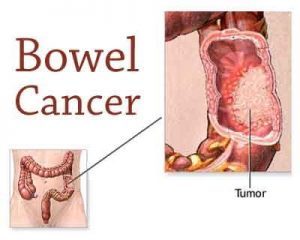- Home
- Editorial
- News
- Practice Guidelines
- Anesthesiology Guidelines
- Cancer Guidelines
- Cardiac Sciences Guidelines
- Critical Care Guidelines
- Dentistry Guidelines
- Dermatology Guidelines
- Diabetes and Endo Guidelines
- Diagnostics Guidelines
- ENT Guidelines
- Featured Practice Guidelines
- Gastroenterology Guidelines
- Geriatrics Guidelines
- Medicine Guidelines
- Nephrology Guidelines
- Neurosciences Guidelines
- Obs and Gynae Guidelines
- Ophthalmology Guidelines
- Orthopaedics Guidelines
- Paediatrics Guidelines
- Psychiatry Guidelines
- Pulmonology Guidelines
- Radiology Guidelines
- Surgery Guidelines
- Urology Guidelines
A new genetic weapon in fight against bowel cancer

Washington D.C : A team of researchers has identified the 'genetic signatures' in bowel cancer cells that can help identify the best treatments for those with the condition.
According to researchers, the treatment works best for each genetic signature so that cancer treatment s can be personalised to beat the disease.
Senior author Mark Lawler from the Queen's University in Belfast, Northern Ireland said that currently, patients with colorectal cancer are offered chemotherapy treatment.
While this treatment may be successful for some patients, for others it would have no effect on fighting the cancer, though the patients may suffer debilitating side effects such as nerve damage that can result in a loss of sensation or movement in a part of the body. A 'one size fits all' approach isn't a viable option if this disease needs to be tackled effectively, Lawler added.
The research was conducted by the researchers at Queen's, in collaboration with the University of Oxford and the University of Leeds.
The study has shown how defining precise gene signatures within bowel cancer cells can allow us to develop novel prognostic and predictive markers for bowel cancer and help to drive personalised medicine approaches.
Researcher Philip Dunne said, "Through analysing the molecular and genetic data generated from patient tissue samples, we have discovered that there are different subtypes of bowel cancer."
Dunne further stated that the team could tailor treatment to the individual patient, maximising its effectiveness while minimising potential side effects.
The researchers concluded that their aim is to develop personalised medicine treatment approaches in this common malignancy.
The study appears in the journal of Nature Communications. (ANI)

Disclaimer: This site is primarily intended for healthcare professionals. Any content/information on this website does not replace the advice of medical and/or health professionals and should not be construed as medical/diagnostic advice/endorsement or prescription. Use of this site is subject to our terms of use, privacy policy, advertisement policy. © 2020 Minerva Medical Treatment Pvt Ltd